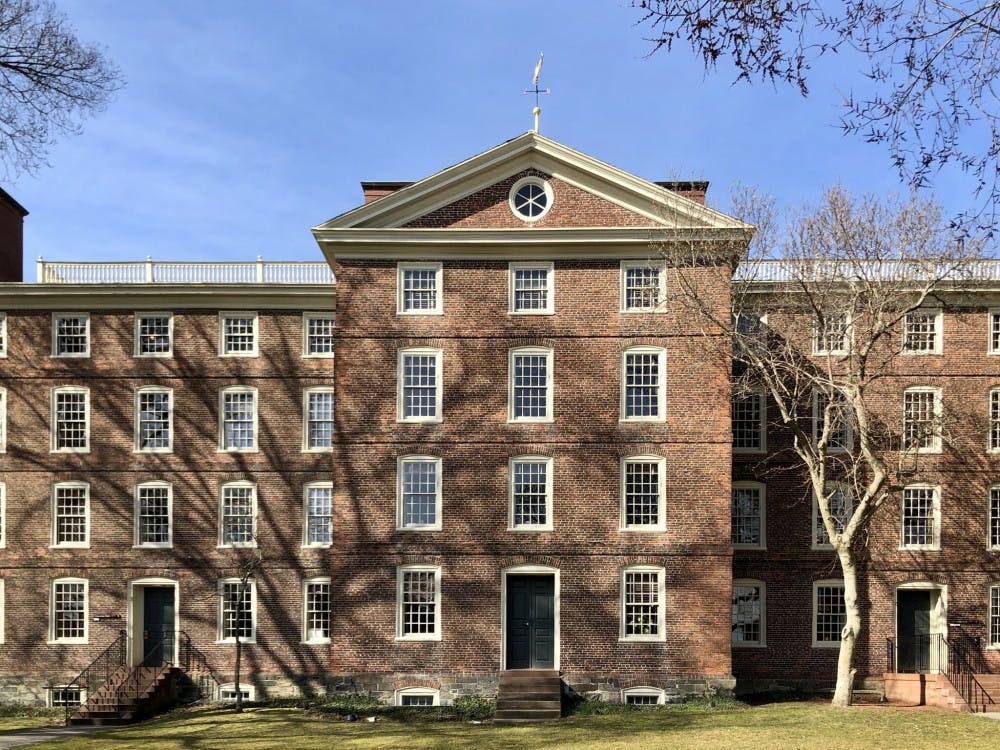The University will begin distributing $5.4 million to approximately 3,500 eligible undergraduate, graduate and medical students the week of March 8, according to a community-wide email from Provost Richard Locke P’18 Friday.
Of the overall funding, $4.8 million comes from the federal Coronavirus Aid, Relief and Economic Security Act and the Coronavirus Response and Relief Supplemental Appropriations Act.
The University will supplement the federal money with an additional $550,000 of its own funding to provide aid to international students and students on leave with demonstrated financial need, two groups who are ineligible for the federal COVID-19 economic relief due to government restrictions.
Awards will range from a maximum of $3,000, for undergraduate students with a $0 parent contribution, to a minimum of $500 for other eligible students.
Additionally, “awards of $1,000 will be granted to eligible medical school and master’s degree students who completed a FAFSA and receive Brown need-based scholarship, a federal loan or both in the current academic year,” Locke wrote.
The University was awarded $2.4 million in funding in April 2020 through the CARES Act, and another $2.4 million in December 2020 through CRRSAA, The Herald previously reported. But until Friday, the University had not shared any definitive plans on how it will distribute the money to eligible students.
The University’s perceived lack of communication and extended distribution timeline prompted concerns among the student body, particularly among members of Brown’s Undocumented, First-Generation College and Low-Income Student community.
Locke began the announcement with an acknowledgement of and apology for the University’s “lack of communication and the concern it has created for some … students” regarding the distribution of the federal funds.
He attributed the delay to “provisions in the laws specifically related to the employment of University personnel.” These restrictions noted that institutions that disbursed CARES Act funding had to demonstrate a “commitment to avoiding layoffs and involuntary furloughs during the pandemic,” The Herald previously reported.
“With the expectation that (the University) can avoid layoffs for the foreseeable future,” and with “clearer budget projections” going into the last quarter of Fiscal Year 2021, Locke wrote that the University can now “confidently” move forward with distributing the aid.
Last spring, several of the University’s peer institutions, including Harvard, Yale, Princeton and Stanford University, refrained from utilizing federal funds made available under CARES in the context of national scrutiny regarding the acceptance of stimulus money by the nation’s wealthiest institutions. Cornell, which received $6.4 million in CARES funding, emailed students who were eligible for an emergency financial aid grant June 8 about how to receive funds. As of Aug. 19, Dartmouth had distributed $1.6 million in stimulus funding.
In determining an equitable distribution plan for the funds, the University “convened a group of students, faculty and staff to develop and consider several options, all within the parameters established by the federal relief programs,” Locke wrote. The group decided to base awards on student financial aid profiles, which they concluded “provides the most financial assistance to those with the greatest financial need.”
The funds will appear as electronic refunds in students’ accounts beginning the week of March 8, following a communication from Student Financial Services which will provide further information about the awards to eligible students.
Locke highlighted Brown’s interim measures to provide financial support to students over the past year, including the provision of roughly $7.3 million in direct student support in the form of summer earning waivers, emergency E-Gap funding, additional financial aid, student payroll funds for employment that could not be done remotely and more.
Locke also pointed to the nearly $10 million the University has spent to provide single-occupancy rooms for all on-campus students and PPE to students in Providence, in addition to another $9.5 million in financial aid to support food and housing needs of remote students, as examples of Brown’s “investment” in supporting its students.
“From the start of this pandemic, we have remained focused on easing the challenges arising from this global crisis for all members of our community,” Locke wrote. “We certainly could have done a better job communicating our decisions and actions as they unfolded. But please know that supporting our students in their educational journey is central to the work we do every day.”

ADVERTISEMENT




